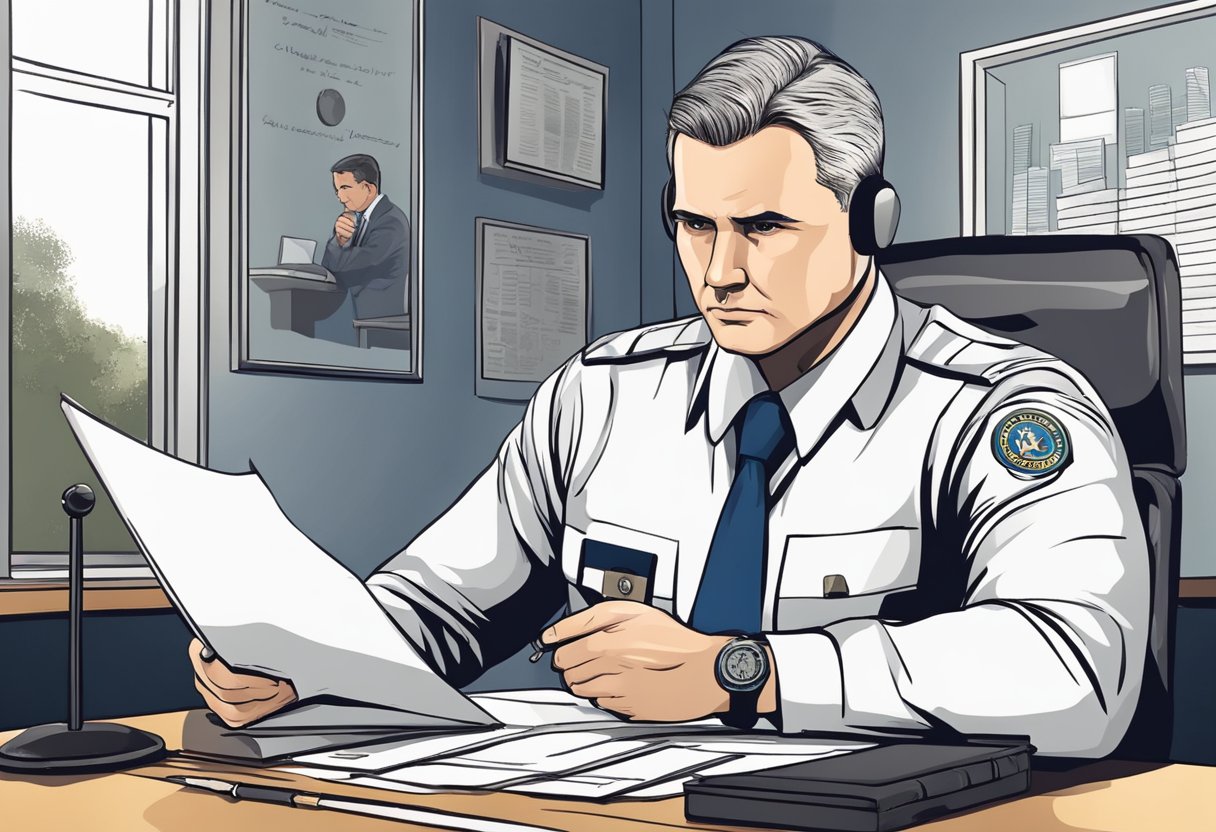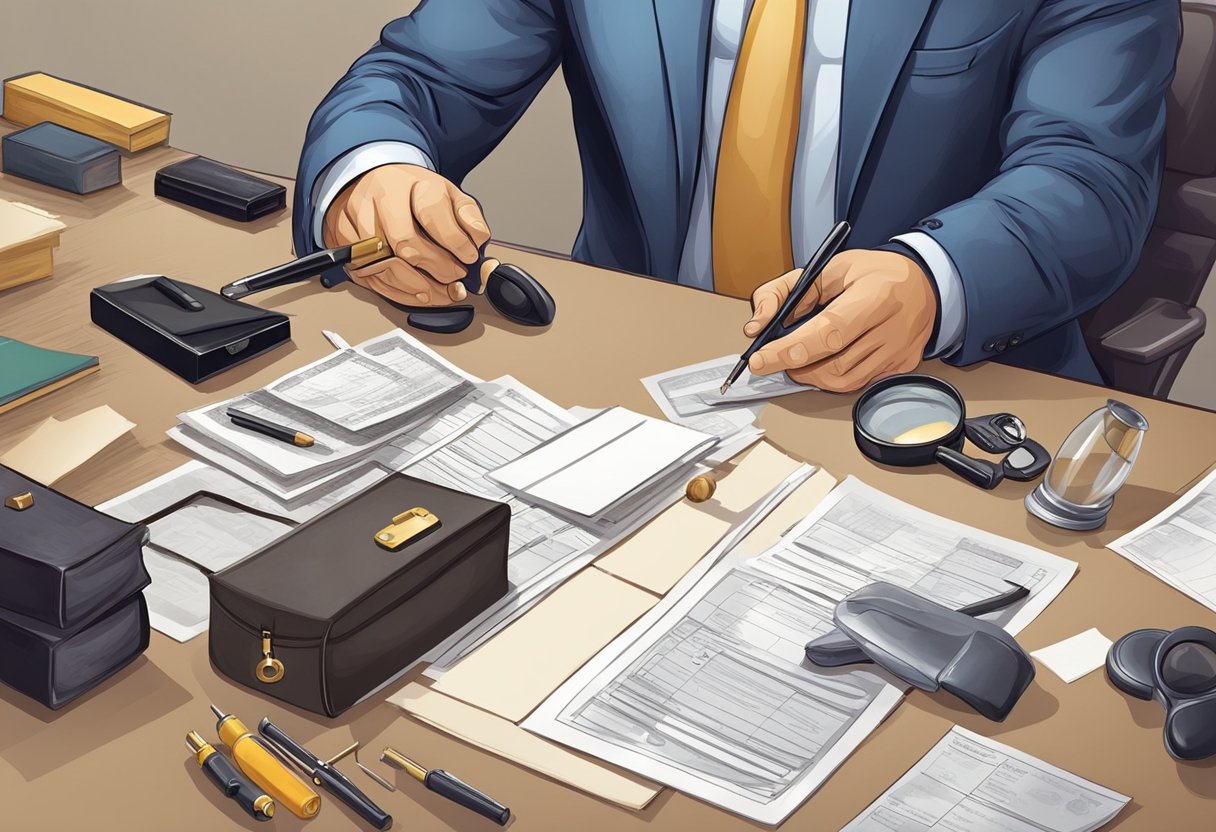Criminal Defense Private Investigator: Protecting Your Rights
Criminal defense private investigators are crucial in the realm of legal defense. They operate behind the scenes to assist defense attorneys by gathering evidence, interviewing witnesses, and generating new leads that may be pivotal for a case. Their role is often a determining factor in building a strong defense, aiming to ensure that the scales of justice remain balanced.
The responsibilities of a defense investigator include a meticulous review of police reports, careful examination of evidence, and detailed analysis of witness statements. Oftentimes, these investigators bring a wealth of experience from previous law enforcement careers, giving them insight into investigative techniques and criminal justice procedures. Their interaction with legal defense teams is a dynamic element of the criminal justice system, influenced by ethical considerations and a commitment to uncovering the truth.
Highlights
- Criminal defense investigators are key players in legal defense teams.
- They are responsible for rigorous evidence analysis and witness interviews.
- Their expertise contributes importantly to the fairness of the justice system.

Role of a Criminal Defense Private Investigator
Criminal defense private investigators are crucial in the construction of a defense case, tasked with exhaustive evidence gathering and detailed case analysis to support the legal team.
Evidence Collection
Private investigators play a pivotal role in evidence collection for the defense. Their objective is to unearth new information that could fortify the defense’s argument. They conduct thorough searches for any overlooked physical evidence and investigate the possibility of alternative theories that may counter the prosecution’s claims. Their work extends beyond what law enforcement has gathered, ensuring a comprehensive search is done, which might lead to discoveries pivotal to the case’s outcome.
Witness Interviews
Witness interviews are a fundamental duty for the private investigator. They meticulously locate and interrogate potential witnesses to acquire testimony that may benefit the defense. Skilled in interviewing techniques, they assess witness credibility, corroborate stories, and cross-check the facts provided against the evidence. The ability to draw out new details that may not have been initially disclosed to law enforcement can be instrumental to the defense strategy.
Case Review and Analysis
In the phase of case review and analysis, criminal defense investigators scrutinize the evidence and testimony from an unbiased perspective. They review police reports, photographs, and other pertinent documents to identify inconsistencies or errors that could be leveraged in court. A well-done analysis can reveal overlooked aspects of the case or accentuate the strengths of the defense’s argument, equipping the attorney with the necessary tools to challenge the prosecution’s case effectively.

Skills and Qualifications of a Criminal Defense Private Investigator
The effectiveness of a criminal defense private investigator hinges on specific skills and qualifications that enable them to navigate complex investigations successfully.
Investigative Techniques
A criminal defense private investigator must be adept with a variety of investigative techniques. This includes conducting surveillance, collecting and preserving evidence, and interviewing witnesses. They must be proficient in undercover operations, while also understanding how to interpret and follow public records. Critical thinking and the ability to draw conclusions from subtle details are crucial.
Legal Knowledge
An understanding of the legal system and knowledge of criminal law are fundamental for investigators who assist in building defense cases. They should be familiar with court procedures, evidentiary regulations, and the rights of the accused. A criminal defense private investigator must ensure that the collection of evidence is lawful and admissible in court.
Technology Proficiency
In the digital age, technology plays a key role in investigations. Techniques such as Digital Forensic Investigation are essential for retrieving and analyzing electronic data. Proficiency in the use of databases, GPS tracking systems, and advanced surveillance equipment is necessary. Regular updates on evolving tech tools are important for maintaining an edge in the field.

Procedures and Protocols
In criminal defense investigations, maintaining the integrity of evidence and adhering to legal standards are paramount. Investigators must follow strict protocols to ensure the defense’s case remains robust and credible.
Chain of Custody
The chain of custody refers to the chronological documentation that records the sequence of custody, control, transfer, and analysis of physical and electronic evidence. Private investigators must meticulously log every interaction with evidence—date, time, location, and person handling it—to protect it from being compromised or questioned in court.
Legal Compliance
Investigators are also bound by specific legal compliance measures that dictate how evidence is obtained and handled. They must operate within the boundaries of the law, avoiding illegal methods such as trespassing, wiretapping without consent, or any form of entrapment that could invalidate the investigation and hurt the defense’s standing in trial.
Confidentiality and Privacy
Finally, confidentiality and privacy measures are critical elements of a defense investigator’s protocol. They are responsible for safeguarding sensitive information, ensuring that both the client’s and witnesses’ privacy rights are respected throughout the investigative process. This involves secure storage of records, judicious communication, and a clear understanding of privacy laws.

The Interaction with Legal Defense Teams
Private investigators play a pivotal role in legal defense teams, often working closely with attorneys to gather information, develop strategies, and assist in courtroom proceedings.
Communication with Attorneys
Private investigators engage in regular dialogue with defense attorneys to ensure there is a clear understanding of case objectives and legal requirements. They provide updates on their findings and align their investigative efforts with the attorneys’ needs, which is essential for building a robust defense.
Strategy Development
They bring to the table a wealth of experience from past cases, which can be critical in forming innovative legal arguments and leveraging lesser-known statutes. Private investigators collaborate with legal teams to identify potential witnesses and cultivate evidence that could create reasonable doubt or dismiss charges.
Courtroom Assistance
In the courtroom, private investigators can offer substantial support by presenting their findings and testifying on evidentiary matters. Their expert insights can often make the difference in swaying the jury’s perception, by substantiating the defense’s claims or challenging the prosecution’s arguments with the evidence they have meticulously gathered and analyzed.

Challenges Faced by Private Investigators
Private investigators encounter a range of professional challenges that can impact their ability to effectively gather information and support their clients’ cases. Below are some of the common hurdles:
- Legal and Ethical Dilemmas: Private investigators must operate within a strict legal framework. Navigating the complex web of laws while maintaining high ethical standards is paramount, yet difficult in many situations. Understanding the nuances of privacy laws and avoiding illegal methods of information gathering is both critical and challenging. Adhering to ethical standards is a non-negotiable part of the job.
- Technological Advancements: With the digitalization of information, private investigators must stay abreast of the latest technological tools. They have to continuously update their methods of surveillance and data collection to keep up with the changing digital landscape.
- Surveillance Challenges: Effective surveillance is a cornerstone of a private investigator’s work. Staying inconspicuous while getting the necessary footage or information requires skill and often involves long and irregular hours.
| Challenge | Description |
|---|---|
| Legal and Ethical Dilemmas | Balancing legal restrictions and ethical responsibilities. |
| Technological Advancements | Keeping up-to-date with digital tools and surveillance techniques. |
| Surveillance Challenges | Conducting effective surveillance without detection. |
- Emotional Strain: The requirement to remain emotionally detached, especially when dealing with sensitive cases such as finding missing persons, adds to the stress of the job. Private investigators often face high-pressure situations that can take a psychological toll.
- Client-Related Issues: After delivering their findings, private investigators may confront dilemmas regarding how the information is used by their clients. Misuse of information by clients can reflect poorly on the investigators. Maintaining professional ethics is crucial to the integrity of their practice.
Each of these challenges demands vigilance, adaptability, and a strong ethical foundation. The ability to overcome these obstacles often distinguishes the most effective and reputable private investigators in the field.

Ethical Considerations in Criminal Defense Investigation
Criminal defense investigations must be underpinned by strict ethical standards to ensure justice and the protection of client rights. Investigators are entrusted with the responsibility of uncovering the truth while respecting ethical boundaries.
Confidentiality and Privacy
Investigators respect client confidences, safeguarding sensitive information from unauthorized disclosure. They balance the need for thorough inquiry with the right to privacy, taking care not to infringe on the personal lives of those involved unnecessarily.
Candor and Honesty
Honesty is paramount in legal proceedings. As highlighted in resources like Ethics for The Defense Investigator, misrepresentation of facts or evidence is not tolerated. Their communications must reflect truthfulness and integrity.
- Truthfulness in Statements: All communicated information must be accurate.
- Integrity in Evidence Handling: Tampering or misrepresentation of evidence is strictly prohibited.
Professional Conduct
The role of a private investigator is also guided by professional conduct which necessitates adherence to the law. Legal and ethical guidelines dictate the methods they may employ during their investigations.
- Adherence to Legal Standards: Ensuring all techniques and methods comply with current laws and regulations.
Ethical considerations are crucial to uphold the reputation of the profession and the legitimacy of legal outcomes. Through strict observance of these principles, investigators contribute to the fair administration of justice.

Advanced Tools and Techniques
In the realm of criminal defense, private investigators leverage cutting-edge tools and technological advancements to gather evidence and build a strong defense case.
Digital Forensics
Private investigators specializing in criminal defense often utilize digital forensics to uncover important data from electronic devices. This technique includes the recovery of deleted files, the analysis of internet histories, and the examination of communication records to find relevant information that may influence the outcome of a case. Mastery of digital forensics tools is essential in the modern investigative process to interpret digital evidence legally and accurately.
Surveillance Technology
The efficacy of any surveillance operation is grounded in the quality of the surveillance technology employed. Today, investigators have access to a range of covert cameras, advanced GPS trackers, and sophisticated audio devices that can capture high-quality evidence without detection. The technology is powerful, not only for its ability to remain hidden but also for its robust data capture and storage capabilities, enabling investigators to draw on a wealth of information when needed.
Career Path and Advancement
A criminal defense private investigator progresses through experience, with opportunities for specialization and career elevation possible through certification and ongoing training.
Certification and Licensing
To begin working as a criminal defense private investigator, individuals must obtain licensing according to their state’s requirements. This often involves a combination of background checks, education, and training hours. For example, some states require a two-year associate degree in Criminal Justice or a related field. After initial licensure, investigators may pursue certifications like the Professional Certified Investigator designation, which can provide recognition of expertise and potentially lead to more advanced positions.
Continued Education and Training
Criminal defense private investigators who invest in continued education and training can specialize in areas like forensic science or cyber security, making them more valuable in complex investigations. By attending workshops, completing continuing education courses, and staying updated with the latest legal and technological developments, investigators can enhance their skills and knowledge, thereby opening doors to senior roles such as lead investigator or consultant for defense attorneys.

Impact of Criminal Defense Investigators on the Justice System
Criminal defense investigators contribute significantly to the criminal justice system by ensuring due process and fair trials. They provide a balance against the resources of the prosecution, thereby enhancing the adversarial process, which is fundamental to a fair justice system.
Objective Investigations: These professionals conduct thorough and impartial investigations into the cases at hand. They are responsible for gathering key evidence, which can include interviewing witnesses, reviewing crime scenes, and scrutinizing prosecution evidence. Their efforts can bring to light exculpatory evidence that may have otherwise remained undiscovered.
Rights Protection: The presence of criminal defense investigators serves as a safeguard for defendants’ rights. By ensuring that all the evidence is considered, they help defend against wrongful convictions and contribute to the overall integrity of the judicial system.
Expertise in Defense: Defense investigators possess specific skill sets and training that allow for detailed and focused analysis of the prosecution’s case. Their expertise provides a unique and valuable perspective, especially in formulating strategic defenses.
Resource Levelling: Particularly in scenarios where defendants cannot afford private investigators, the Criminal Justice Act provides for these services, aiming to level the playing field against more resource-abundant prosecutors.
These facets of a criminal defense investigator’s role emphasize their importance in maintaining checks and balances within the justice system, preventing bias in prosecution, and upholding democratic principles of justice.

Frequently Asked Questions
In this section, readers can find answers to common questions regarding the qualifications, costs, training, certification, and legal responsibilities associated with being a criminal defense private investigator.
Qualifications for becoming a criminal defense private investigator typically include a mix of education, experience in law enforcement or legal work, and a thorough understanding of the criminal justice system. In some regions, investigators are required to have a license to practice, which entails meeting specific criteria set by the state.
The cost of hiring a criminal defense private investigator can vary widely depending on the complexity of the case, the investigator’s experience, and the location. Rates may range from an hourly fee to a flat rate, with additional expenses for specialized services.
Specialized training for a criminal defense private investigator often includes coursework in criminal law, crime scene analysis, interviewing techniques, and surveillance. Many also pursue continuing education to stay current with the latest investigative tools and legal updates.
Certification can typically be obtained through professional organizations that offer accredited programs, requiring a combination of relevant education, professional experience, and the successful completion of a certification exam.
Criminal defense private investigators must adhere to laws and regulations regarding evidence handling, privacy, and reporting. They are required to conduct investigations ethically, ensuring the integrity of their work and the admissibility of evidence in court.





